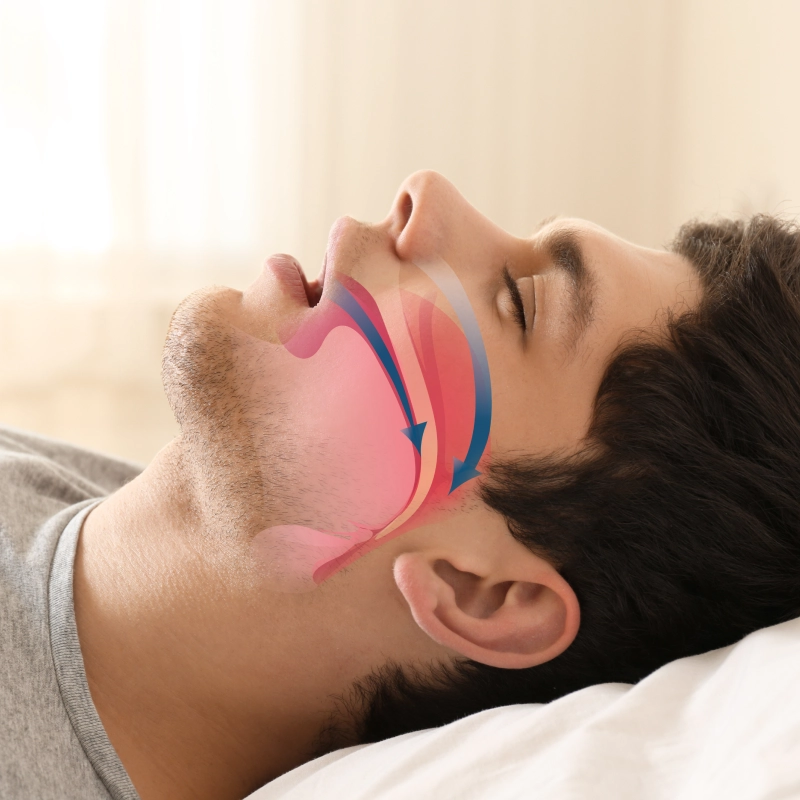
Sleep is essential for our physical and mental health. It allows our bodies to rest and repair themselves, and it helps us to consolidate memories and learn new things. However, many people do not get enough sleep. In fact, the Centers for Disease Control and Prevention (CDC) estimates that one in three adults in the United States does not get the recommended amount of sleep each night.
There are many reasons why people may not get enough sleep. Some common causes include stress, anxiety, and caffeine. However, one of the most common causes of daytime sleepiness is sleep apnea.
What is Sleep Apnea?
Sleep apnea is a sleep disorder that causes you to stop breathing repeatedly during sleep. This can happen hundreds of times each night. When you stop breathing, your brain briefly wakes you up so that you can start breathing again. However, you may not be aware of these awakenings.
Types of Sleep Apnea
There are three main types of sleep apnea:
- Obstructive sleep apnea (OSA): This is the most common type of sleep apnea. It occurs when the muscles in the throat relax and block the airway.
- Central sleep apnea (CSA): This occurs when the brain does not send the proper signals to the muscles that control breathing.
- Mixed sleep apnea: This is a combination of OSA and CSA.
Symptoms of Sleep Apnea
The most common symptom of sleep apnea is daytime sleepiness. Other sleep apnoea symptoms:
Snoring
- Witnessed pauses in breathing during sleep
- Choking or gasping for air during sleep
- Morning headaches
- Dry mouth or sore throat
- Difficulty concentrating
- Irritability
- Depression
How is Sleep Apnea Diagnosed?
Sleep apnea is diagnosed through a sleep study. A sleep study is an overnight test that monitors your breathing, heart rate, oxygen levels, and brain activity while you sleep.
Treatment of Sleep Apnea
There are several treatments available for sleep apnea. The best treatment for you will depend on the severity of your sleep apnea and your individual needs. Some common treatments include:
- Continuous positive airway pressure (CPAP): CPAP is the most common treatment for sleep apnea. It uses a machine to deliver air pressure through a mask to keep your airway open while you sleep.
- Oral appliances: These devices are worn in the mouth and help to keep the airway open by moving the lower jaw forward.
- Weight loss: If you are overweight or obese, losing weight can help improve your sleep apnea.
- Surgery: In some cases, surgery may be an option to remove or shrink tissues that are blocking the airway.
Lifestyle Changes
There are also some lifestyle changes that you can make to help
improve your sleep apnea, such as:
- Losing weight
- Quitting smoking
- Avoiding alcohol
- Getting regular exercise
- Establishing a regular sleep schedule
Conclusion
Sleep apnea is a common and serious sleep disorder that can have a significant impact on your health and well-being. If you are experiencing any of the symptoms of sleep apnea, it is important to see your doctor for diagnosis and treatment. With proper treatment, you can get the rest you need to live a healthy and happy life. Sakra World Hospital is dedicated to offering advanced healthcare solutions, including state-of-the-art
sleep disorder diagnostics and treatment options, ensuring that patients receive personalized care for their specific needs.

